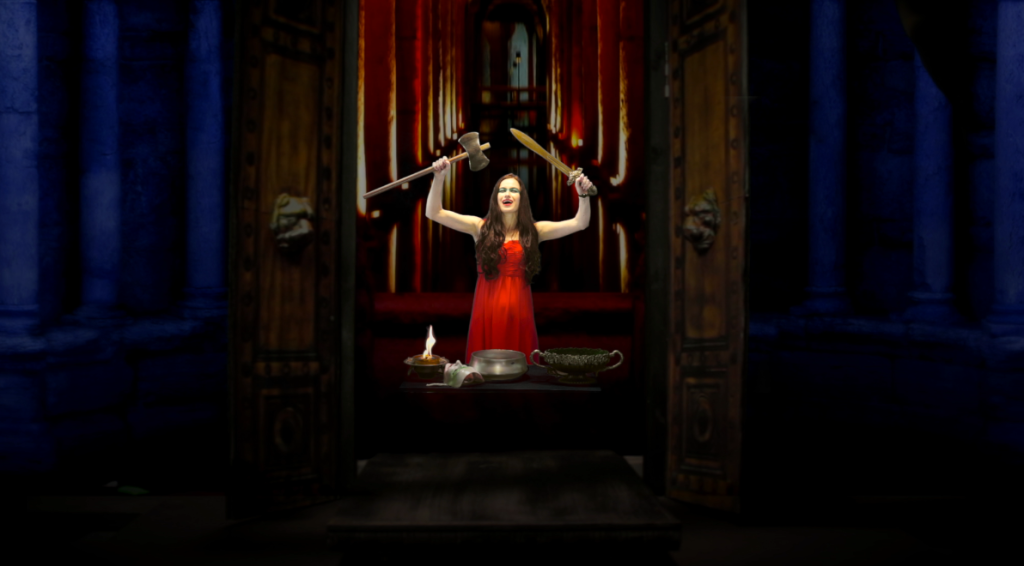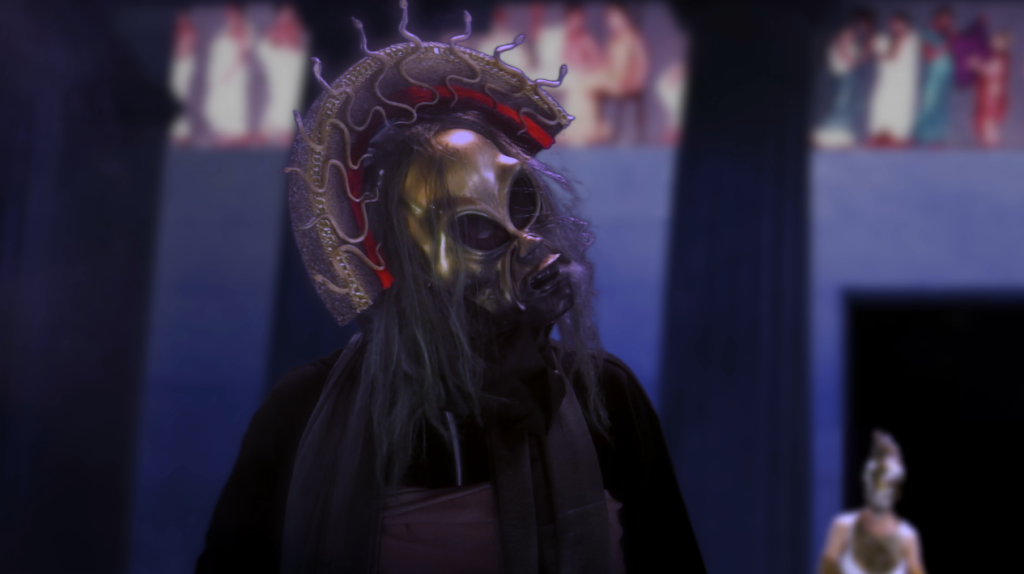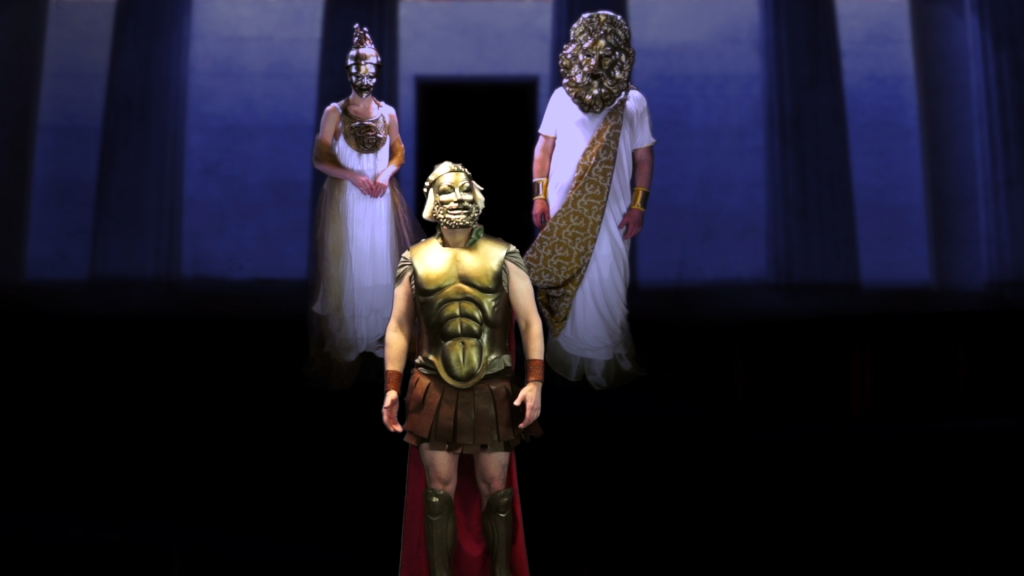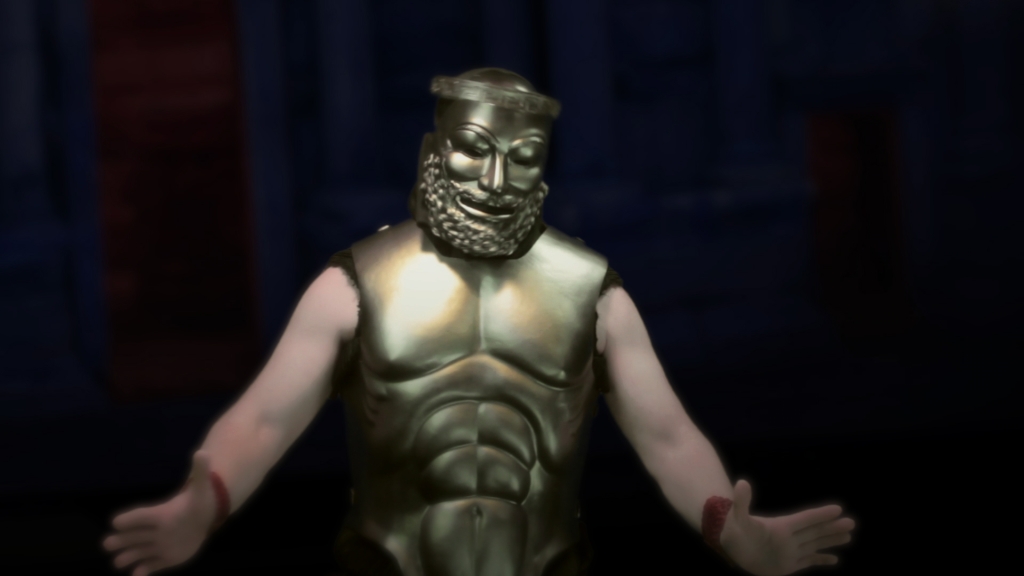I just viewed the four and half hour staging of the Oresteia by MacMillan Films on DVD and it is a delight to see the entire trilogy in a faithful translation.
I remember seeing the entire production live at the now-closed Groton theater in Connecticut 30 years ago – and I remember well the thrill of catharsis after experiencing the day-long ordeal. I have also enjoyed Peter Hall’s 1980’s British staging but found that this new staging on DVD gave me insights into many aspects of the drama which I had not noticed.
First, Peter Arnott’s translation is excellent. Like all Peter’s work. it strikes the balance between good scholarship and audience pleasing. This is not surprising because Peter Arnott was head of classics at Tufts and also an actor. His translations benefit from being audience tested – as those of us who were lucky enough to witness his marionette productions can attest. His work contains none of the colloquialisms, modern slang and fake primitive compound nouns found in other translations. It is Peter Arnott’s love and respect for Greek drama that allows the majesty of Aeschylus to shine.
Second, this new staging features excellent super-clear audio, ambitious performances and a bold staging that uses classical staging conversions to bring the text to life.
One of the most surprising elements in the production is the use of a traditional ekkyklêma – the wheeled platform supposed to have been used in the original Greek production. I have never seen one used in a Greek drama before and the impact of such a theatrical devise has been overlooked. Whenever you hear the doors to the skênê open and the wheeled platform rolled out, you know that you are going to see something horrific – something monstrous emerge from the interior of the palace. The first time it is used – during the first chorus of Agamemnon – Clytemnestra emerges to sacrifice a piglet. All the productions I have seen save Clytemnestra’s entrance for later in the drama – but it is clear from what the chorus of old men are saying, that an early entrance works. While killing a piglet was probably a good deed back in 5th century Athens, the obvious foreshadowing of larger sacrifices to come, sets up the drama.

This Oresteia opted to stage the drama with both male and female actors – instead of the more traditional all-male cast. Having a woman play Clytemnestra, Cassandra and the other female leads, adds a strong appeal and I found myself feeling more sympathetically for the female characters who were more real to me then men in drag. The production is all done with British accents, which is less immediately accessible to us Americans but works well, perhaps because Peter Arnott was English and his translation is tuned to an English ear.

The 2014 MacMillan Films production is not a perfect staging. The convention of wearing masks seems unnecessary in the modern age. Why deprive the audience the satisfaction of seeing the actor’s facial expressions when cutting to a close-up is so easy? Some of the characters in the production – including Cassandra – did not wear masks – and I wish Clytemnestra could have been played without a mask.

Having bikini-clad slave girl play the chorus of the second play – in The Eumenids – seems exploitative even by the standards of a drama that is the touchstone on misogyny. The poor chorus slave girls are not only half-naked and literally in chains, but they are deprived of all their dialogue which is fed to a monstrous slave woman insect creature that is played by a male actor.
The staging also attempted to bring back the “deus ex machine” by having Hermes drop in from the rafters in mountaineering harness and by having Athena’s chariot fly in for a grand entrance. Perhaps 5th century Athenians would have been wowed by such flying machine tricks – but in a world of “Spiderman on Broadway” such thin effects only serve to attract ridicule.

But I am nitpicking – the solid performances throughout draw out the meaning of the words far beyond any staging I have seen. The Furies breathe smoke and actually sing the Song of the Furies which is something I have never seen before. And a haunting music score gives life to the drama and epic poetry. The Oresteia is a play on three on many levels – three dramas, three generations cursed, Clytemnestra’s three killing stokes etc. etc. etc. and the music score accents these trilogies with three haunting notes – which adds to the thematic unity of this Oresteia.

The Oresteia is remembered today because of its poetry and insight – and because these have effected all the great writers and thinkers since. It is wonderful to have a staging that brings that language and poetry to life as never before. The Oresteia is too important for it to be experienced dimly. The trilogy about matricide is a metaphor for humanity’s need to move beyond cycles of violence. It’s a message that’s as deep and relevant today as it was 2,500 years ago – and now everyone can experience it as never before. The program is released to libraries and universities by MacMillan Films.

Contributor: Zita Walsh



if this can be purchased in the uk are there large postal costs . can anyone help with this? thanks.
It’s like $18 to mail to Britain – don’t worry about postage – they’ll ping you if they charge anything.
I think it ships internationally https://www.macmillanfilms.com/store/
Yes, that’s right – all three plays of the Orestia are available on DVD. Along with all the other Greek dramas.